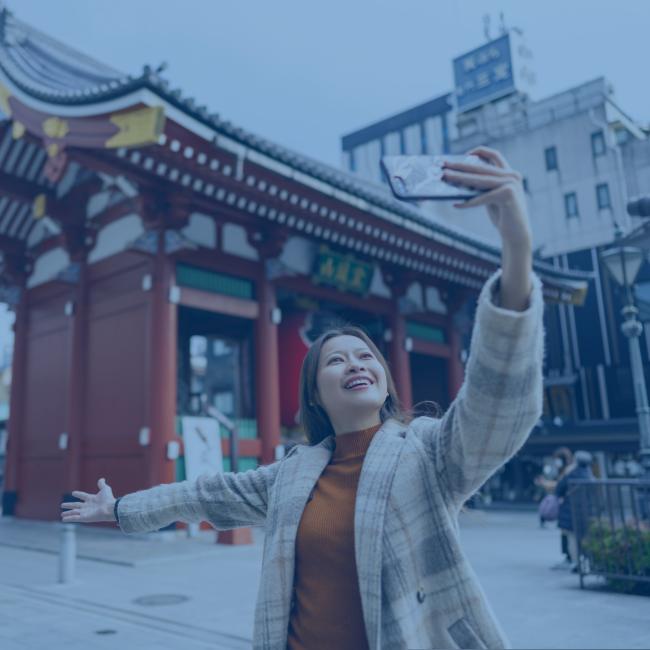4 Digital Marketing Trends That Have Shaped the Travel Industry in 2023


The travel industry has always been characterized by its adaptability and resilience. This year, the digital landscape continues to play a pivotal role in shaping the way businesses in this sector engage with their audience. As technology evolves at an unprecedented pace, travel companies must stay ahead of the curve in terms of digital marketing strategies. In this blog, we will dive into four prominent digital marketing trends that are steering the course for the travel industry this year.
-
Augmented Reality and Virtual Reality Travel Experiences
In an era when immersive experiences are highly sought after, AR and VR are revolutionizing the way travelers explore destinations even before packing their bags. Travel companies are leveraging AR and VR to provide potential customers with virtual tours of hotels, attractions, and destinations. So much so that companies and hotels are adopting a try-before-you-buy marketing strategy by providing 360-degree videos and photos of their hotel spaces that increases the conversation rate of potential customers. This trend not only enhances the pre-travel excitement but also enables travelers to make more informed decisions.
-
Hyper-Personalization for Enhanced Customer Experiences
Gone are the days of one-size-fits-all marketing. The travel industry is now embracing hyper-personalization to cater to individual preferences and needs. Utilizing data analytics and AI, companies can craft personalized travel recommendations based on past behaviors, demographic information, and real-time interactions. Whether it's suggesting a specific type of cuisine, activity, or destination, this level of personalization enhances customer satisfaction and builds long-lasting brand loyalty.
-
User-Generated Content (UGC) as a Trust-Building Tool
UGC has become a cornerstone of digital marketing in the travel industry. Travelers trust the opinions of their peers more than traditional advertisements. Companies are encouraging customers to share their travel experiences through photos, videos, and reviews. This not only provides authentic content but also fosters a sense of community. 83% of users usually refers to reviews before deciding on a hotel, while 76% depends on guest-uploaded travel photos for decisions. Integrating UGC into marketing campaigns reduces costs and enhances credibility and influences potential travelers.
-
Influencer Collaborations in Travel Marketing
Influencer collaborations continue to be a potent tool in travel marketing. However, the trend has evolved from partnering with mega-celebrities to engaging micro-influencers who have a niche and an engaged audience. These influencers often have a more authentic and relatable connection with their followers, resulting in higher engagement rates. Travel brands are leveraging these partnerships to showcase destinations and experiences in an organic and appealing manner. To put it into perspective, 86% of people grew interest in traveling to a specific destination after seeing influencer images in their feeds.
The digital marketing landscape in the travel industry is evolving rapidly in 2023, influenced by technological advancements and changing consumer behaviors. Augmented reality, hyper-personalization, user-generated content, sustainability, and influencer collaborations are just a few of the trends steering the industry's course. Staying attuned to these trends and incorporating them into marketing strategies will undoubtedly enable travel companies to navigate these dynamic seas successfully and connect with travelers on a deeper level. It will be fascinating to see how these trends continue to shape the travel industry and inspire unforgettable journeys.
If you would like to learn more about how to ensure your travel business is set up for global success in 2024, get in touch with our team of experts today.



